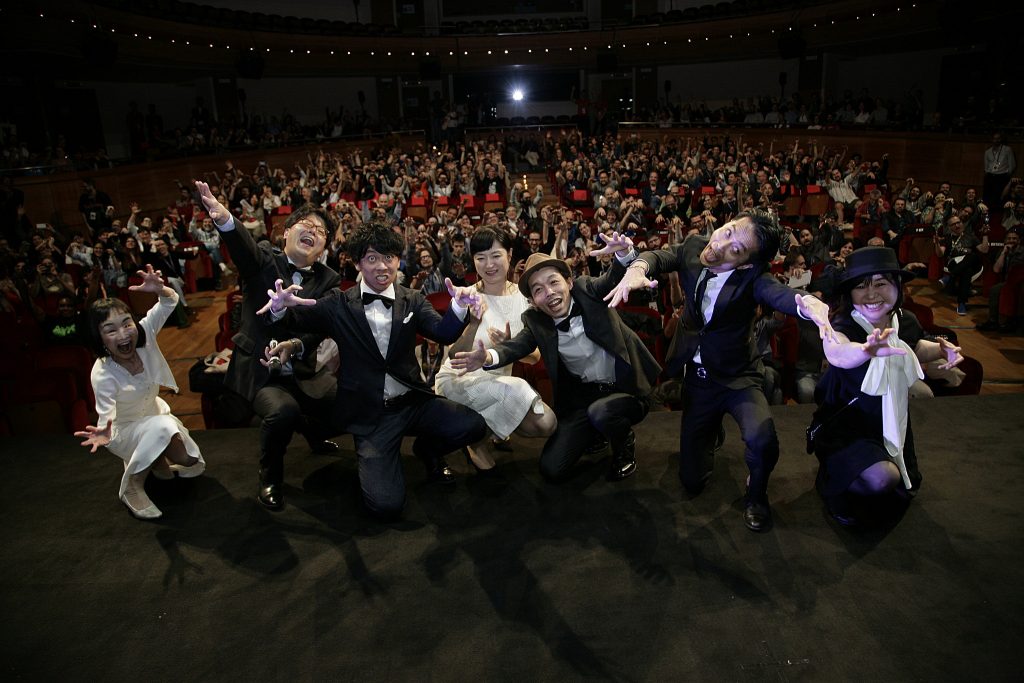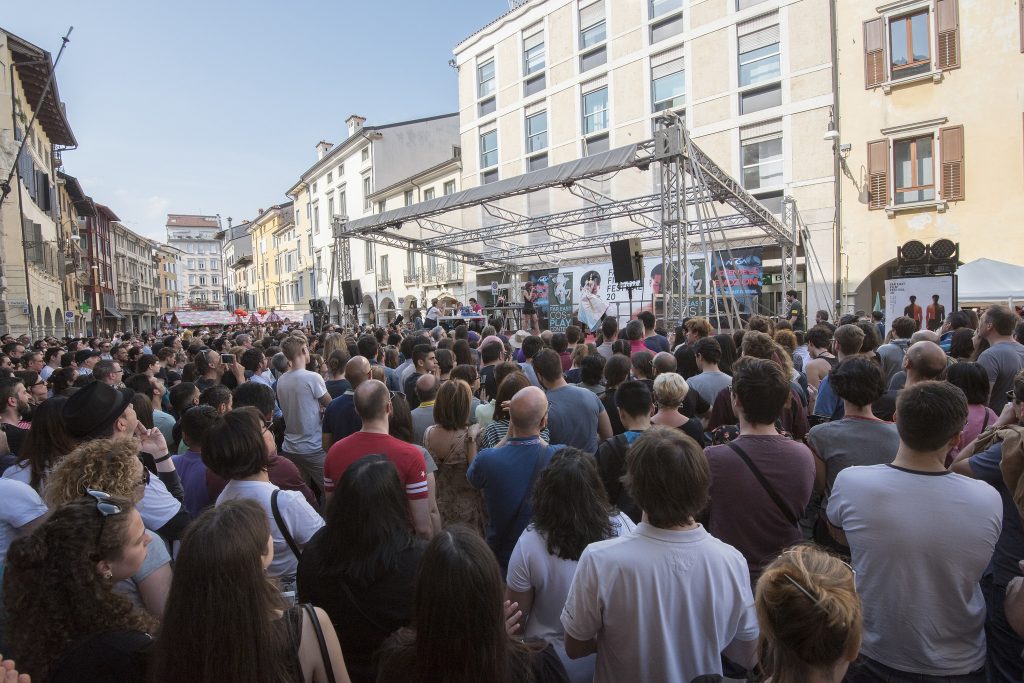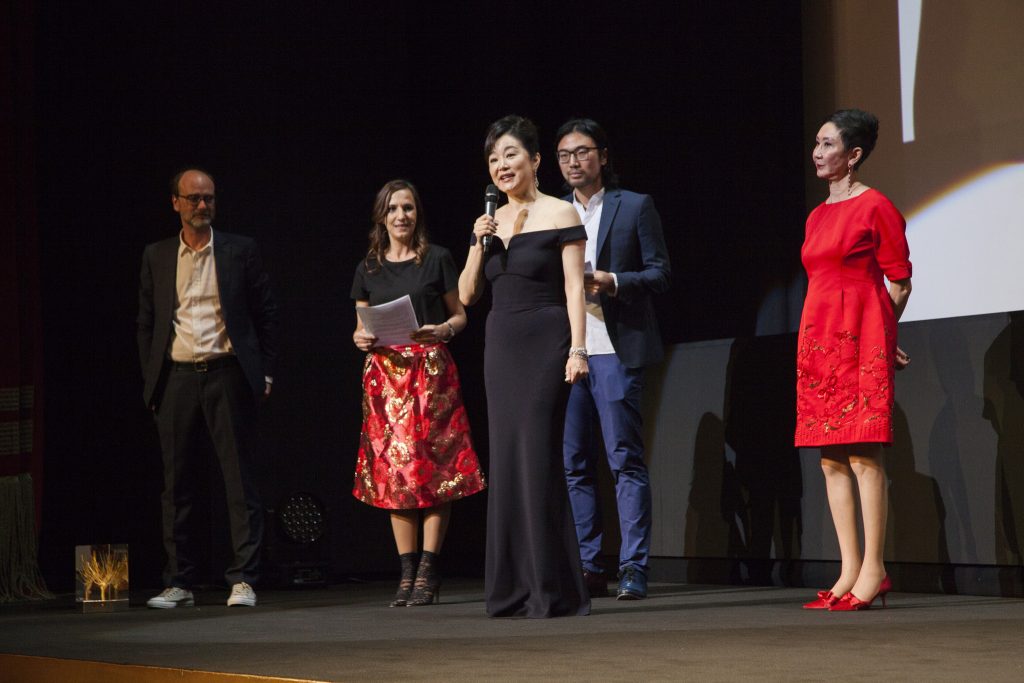The Far East Film Festival attracts a loyal – and ever-growing – band of Asian film fanatics.

Fans at this year’s edition of FEFF were delighted by the antics of the cast of Japanese zombie flick One Cut of the Dead. Photo: Courtesy of Far East Film Festival.
The city of Udine’s position in the far north of Italy means that for centuries it has been at the crossroads of European civilisations. For the past 20 years, it has welcomed a certain type of visitor from Asia as well.
On paper, the Far East Film Festival might not have ever succeeded, given that it focuses on Asian popular cinema, with screenings of the likes of horror and comedy, sci-fi and romance. When it comes to Asian films, most European festivals – and audiences – had traditionally been focused more on the region’s art-house style fare.
But FEFF has been a huge success. This year, more than 60,000 people make the trip into Udine’s Teatro Nuovo – a city of just around 100,000 itself – and fans have over two decades taken films from the likes of Hong Kong’s Johnnie To (“Election”), China’s Feng Xiaogang (“Aftershock”).
The audience each year is made up of curios – such as cinephiles, journalists and film critics – and the plain curious. But why such passion, given the fact the subject matter (and the characters featured in most of these films must – to many – seem slightly out of this world.
“I started attending FEFF 15 years ago, when I was at University of Udine. The screenings were for free, and I even used to sleep at the theatre with my friends,” said Massimiliano Deliso, who now writes for the Italian edition of Rolling Stone magazine.
The initial attraction, Deliso said, was in seeing how Asian popular cinema presented life – and all aspects of it – in such a different way. Sex, for instance, could be chaste, but sometimes it could become sadistic in the way Asian filmmakers express sexual desires or sexual fantasies.
Deliso cites seeing the “magical realism” of Japanese great Akiro Kurosawa’s “Dreams” (1990) as a memorable experience at FEFF, as well as Suichi Okita’s whimsical “A Story Of Yonosuke” (2013).
Filippo Gortani is an Economics student in the University of Trieste, but originally comes from Villa Santina, a little village in the Alps with just 2,000 inhabitants.
“I am an Asian cinema lover and this is the first year I have been able to come to FEFF,” he said. “One of my favourite aspects of Asian cinema is the fact that characters are well-rounded. There is not just the one main character that the plot revolves around, but instead, all of the characters are fully explored.”

The annual cosplay competition in Udine brings out a little bit of Asia in Italy. Photo: Courtesy of Far East Film Festival.
Chiara Guidobaldi studies at the University of Perugia, but made the trip up to Udine from Foligno, more than 500 kilometres away.
“I took a train at six in the morning and reached Udine eight hours later,” she said. “I feel that Asian popular cinema has a poetic aspect to it; even when they deal with issues such as hatred and revenge, there’s a narrative tone that is poetic and sensitive”.
When asked if she liked FEFF, Guidobaldi replied: “If I keep coming back, there must be a reason, right?”
Italian director and screenwriter Massimo Gaudioso (“Gomorrah”) was part of this year’s three-man jury for FEFF’s White Mulberry award, for the best first or second feature.

The annual cosplay competition in Udine brings out a little bit of Asia in Italy. Photo: Courtesy of Far East Film Festival.
“It’s my first time here,” he said. “I am glad I’ve been called in because I think the festival is really well made and there is a nice atmosphere. One can meet all these authors and eventually understand there are not so many differences between our cultures. My relationship with Asian cinema started a long time ago, with the great Japanese and Chinese authors, Kurosawa, Ozu, Mizoguchi, and now it has been enriched by the new authors. I like that FEFF brings one to different realities. There is a visually way of storytelling, a detailed attention to the language of images that it is not so present in other cinematographies. The only negative note is the duration of the films is far too long and the end seems to never come!”
This is the second in a series of stories about the 20th Far East Film Festival, which took place this year from April 20-28. Gentiana Kolnrekaj was part of the FEFF Campus programme for aspiring journalists.






